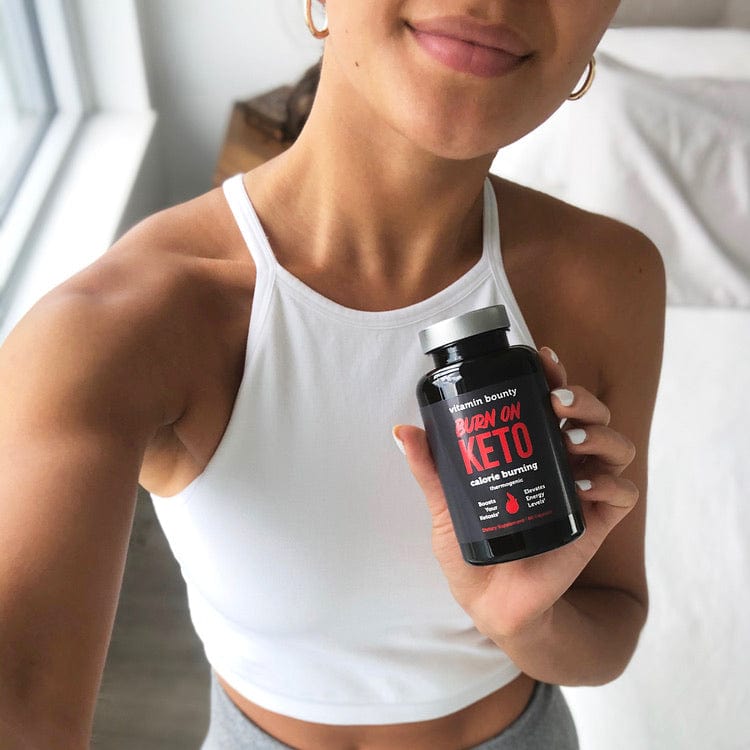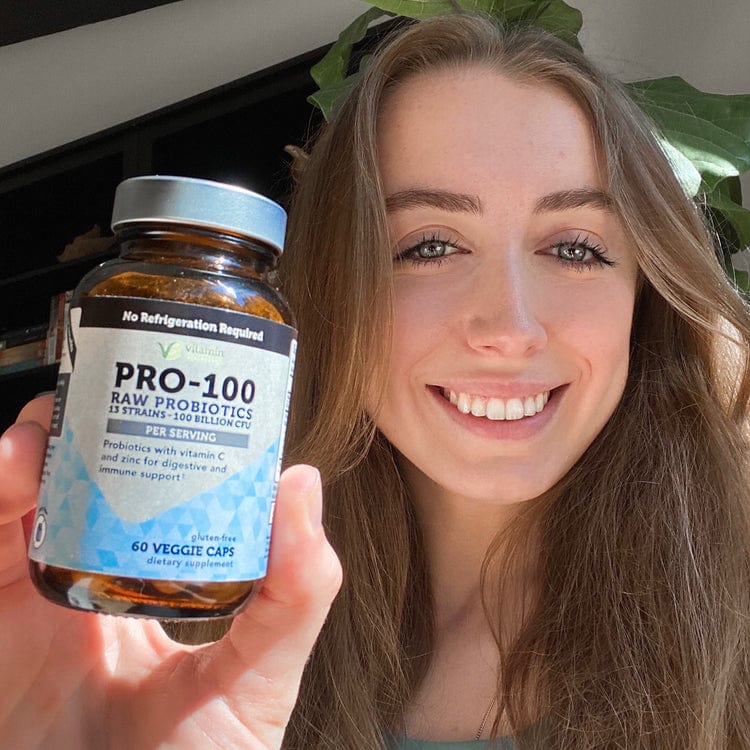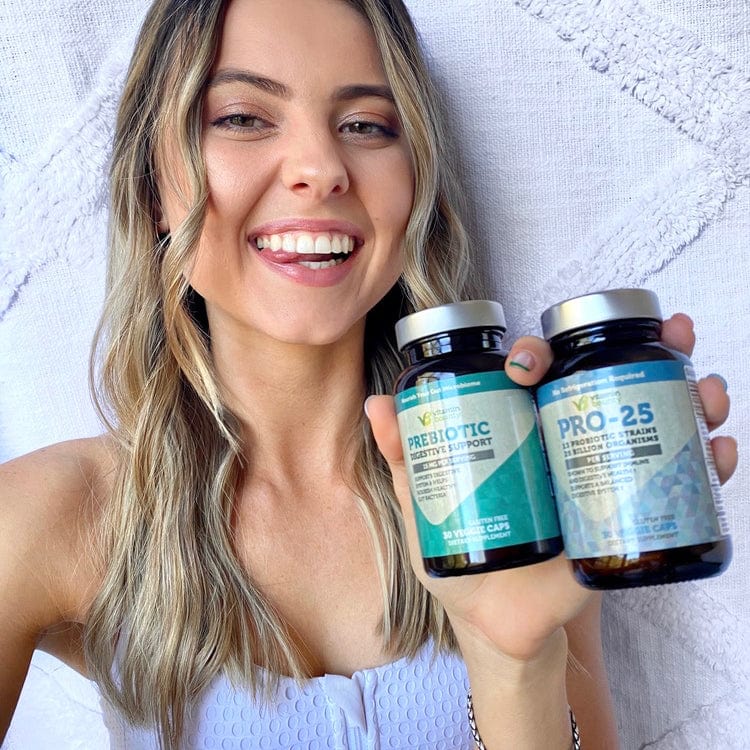The popular Ketogenic Diet, which drastically reduces your daily intake of carbohydrates in favor of using healthy fats for fuel, is certainly an effective strategy for weight loss. However, because the keto diet is a bit restrictive —after all, your body primarily runs on carbs — you may face the risk of becoming deficient in several key vitamins and nutrients as a result of cutting several foods from your diet.
Getting the right amount of vitamins and nutrients is extremely important, especially while on the keto diet, as your body will require that much more energy to make the successful transition from using carbs to using fats as fuel.
In this article, we'll discuss several of the essential vitamins and nutrients your body needs to remain healthy and sustain your energy. Read on to learn more about the most important micronutrients for optimal results from the keto diet!

Sodium
Sodium is perhaps the most essential mineral for adequate electrolyte absorption, and aids in controlling blood pressure in addition to absorbing micronutrients.
Unfortunately, slashing your carbohydrate intake also means slashing the amount of sodium you're consuming through the foods you eat. As your body enters a state of ketosis — the state of not having enough carbohydrates to burn, so it begins to burn fat as an alternative — your body begins to shed more water, and along with it, electrolytes. The fix for this, though, is pretty simple: just reach for the salt shaker!
You'll definitely want to stay on top of consuming enough sodium, particularly if you're an athlete, which means that you're likely secreting more salt throughout the day than the average person.
Calcium
Calcium is crucial for healthy bones and teeth, making it especially important for women, who are significantly more likely to develop osteoporosis than men.
Despite the fact that a certain amount of calcium is produced naturally by your body, it is a nutrient that needs to be consumed regularly through external sources, such as vitamins or food. You should especially pay attention to your calcium intake in the beginning stages of the keto diet, when most of your natural calcium stores will be eliminated from your body along with other electrolytes.
Examples of good, keto-friendly sources of calcium include cheese, almonds, broccoli, and kale, to name a few.
Iodine
Iodine is one mineral you definitely don't want to overlook or skip in your diet, because it regulates and controls your thyroid health, which is responsible for metabolic rate, brain and bone maintenance, and muscle and digestive function.
The keto diet restricts you from eating the majority of pre-packaged foods, which can sustain iodine levels through their high amounts of sodium. However, you can continue consuming necessary iodine by adding a bit of extra table salt to your meals, or by focusing on foods that contain naturally-occurring iodine, such as cod, eggs, tuna, and kelp.

Vitamin B Complex
It's important to keep up your intake of Vitamin B if you've recently made the switch to the keto diet. Vitamin B complex contains a range of other key vitamins, including riboflavin, thiamin, biotin, folate, and many more. All of these are necessary for sustaining a healthy diet and lifestyle.
If you become deficient in B vitamins, you may face health challenges and risks, such as anemia, depression, confusion, fatigue, poor memory, and numbness and tingling, among other side effects.
Luckily, there are several great sources of Vitamin B that work perfectly with a ketogenic diet, including red meats, seafood, dairy, nuts, and seeds.
Omega-3 fatty acids
Healthy fats that you should definitely target on the keto diet are Omega-3s, which are typically found in sources such as fatty fish (like salmon), avocado, and olive oil — all of which are highly recommended and great sources of nutrition.
Omega-3 fatty acids are essential for reducing inflammation, aiding in brain health and development, and reducing blood pressure. The recommended amount of Omega-3s you should aim to consume on a daily basis is 4,000 mg, but if this isn't feasible, consider incorporating a fish oil vitamin into your diet.

Vitamin C
Antioxidants, such as Vitamin C, act to remove oxidizing agents and reduce free radicals in your body, which can lead to heart disease, cancer, and other diseases. Vitamin C, in particular, is so important because it additionally helps to build collagen in the body, which strengthens muscles and protects blood vessels.
Unfortunately, a ketogenic lifestyle may make it challenging to consume adequate amounts of Vitamin C, as the most prominent sources of the vitamin are found in citrus fruits — which are high in carbohydrates. Still, you can make up for the absence of citrus fruits with keto-friendly sources of Vitamin C, including broccoli, spinach, cauliflower, kale, and Brussels sprouts.

Magnesium
Magnesium is important for regulating muscle and nerve health, stabilizing blood sugar levels, and building protein, bone, and DNA in the body. Moreover, health benefits of magnesium include boosted energy, improved mental health, and reduced blood pressure. You can see, then, why it is necessary to maintain the right amount of magnesium!
To ensure you're maintaining adequate levels of magnesium, try incorporating foods such as almonds, cashews, kale, spinach, and avocados into your diet, or consider a multivitamin or supplement that targets all essential nutrients.
Pack it all into one!
While it certainly sounds ideal to get all of the vitamins and minerals you need solely through healthy foods, the reality is that life is often hectic, and it can be a challenge to consistently get all of the nutrients you need through the food you eat.
If this sounds like you, it would be a good idea to start taking a daily multivitamin as a precautionary measure to ensure you're fueling your body with everything it needs to function at its best. The Tune Your Keto Multivitamin features all of the major vitamins, minerals, and nutrients to keep you energized, healthy, and successful in accomplishing your weight loss goals, including Vitamins A, B, C, D, E, K, B6, B12, Biotin, Iodine, Magnesium, Zinc, and a special keto blend with collagen to support bone and muscle health.
Remember: Your health is best maintained with a balanced diet. Be sure to target all of the essential nutrients your body needs, either through whole foods or with the boost of an effective multivitamin, and you'll be that much more successful in achieving your weight loss goals!








Leave a comment
All comments are moderated before being published.
This site is protected by hCaptcha and the hCaptcha Privacy Policy and Terms of Service apply.